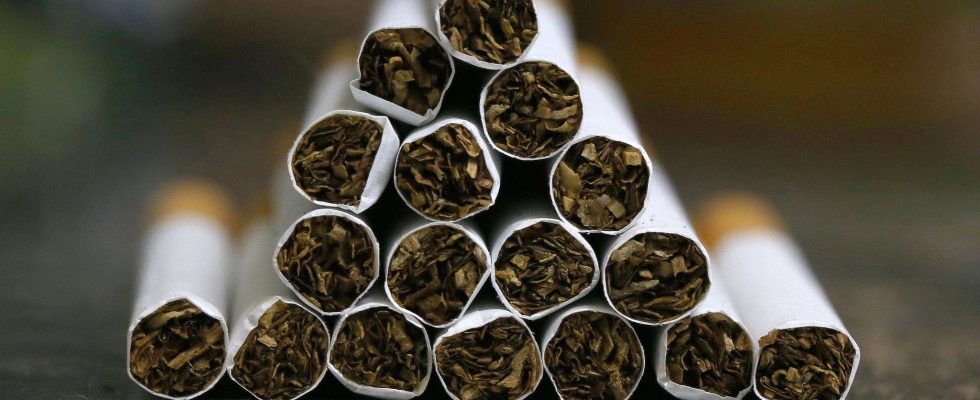“Thing promised, thing due”… It happens, however, that the maxim leaves people disappointed. After committing to stop supplying the tobacco industry, around ten French banking establishments continued to finance the giants of a “deadly trade” through loans, insurance or investments. This is according to a press release from the Alliance Against Tobacco (ACT) published this Wednesday March 6.
“Despite the human, societal and environmental disaster represented by the tobacco industry, it continues to benefit from financial support […] from French establishments”, deplores the collective which recalls that tobacco is the cause of 75,000 deaths each year in France. Reason why “it is urgent […] to strictly exclude the tobacco industry from all forms of financing”, insists Marion Cattelin, director of the ACT-Alliance Against Tobacco.
5 billion dollars in financing since 2018
In support, a report commissioned from the investigative organization Profundo, the results of which are damning. The document reveals that more than five billion dollars in credits were granted by French banking players to tobacco companies. In detail, two billion dollars were loaned to the British American Tobacco industrialist, 1.3 billion to Philip Morris International and 1.1 billion to Imperial Brands over a period extending from 2018 to 2023. “Financing […] representing amounts of particular importance in view of the perfectly known consequences of tobacco on public health or the environment”, underlines the ACT.
Two banks mainly are said to be at the origin of this financing: Crédit Agricole and Société Générale. But “if the first has stopped supplying the tobacco industry since 2021, the second has a real share of responsibility”, underlines the Alliance against Tobacco. 83% of French financial support would in fact come from Société Générale, which would have granted more than $9 million in credits to companies in the sector over the year 2023.
By refraining from any comment on the figures highlighted by the study, Société Générale assures our colleagues at AFP that it is “aware of the environmental and social impacts associated with the tobacco sector, and recalls that it is “engaged in an exit strategy from the sector”. Since September 2023, the banking establishment is supposed to exclude the tobacco industry from all financing.
Disinvestment that is slipping
In addition to the credits granted to the tobacco giants, investments in the sector remain, even today, pharaonic: last November, 733 million dollars were placed in tobacco shares. Operations carried out by French financial institutions, up to 40% for Groupe BPCE, and more than 20% for Crédit Agricole.
Two establishments are nevertheless signatories to the “Tobacco Free-Finance Pledge”, established in 2018 by the Australian NGO “Tobacco-Free Portfolio” with the support of the WHO. A charter, which aims to encourage international financial players to reduce investments in the tobacco industry. To date, 204 banking establishments have signed it, but many continue not to respect all of the commitments, like the French establishments singled out by the report.
“Beyond public health policies, the fight against smoking is also played out on a financial level. If the tobacco industry succeeds in maintaining its deadly trade, it is also thanks to the resources provided to it by banking and investment funds”, argues Marion Cattelin.
Strengthen exclusion policies
If the Alliance against Tobacco concedes a trend towards disinvestment, in particular thanks to the adoption of sectoral exclusion policies, efforts must still be made before achieving “tobacco-free finance”. “The exclusion policies adopted by financial players are not strict enough,” notes the collective, for example.
Furthermore, in a summary document published this Wednesday, the ACT highlights the ISR label (for “Socially Responsible Investment”), originally designed to reconcile both concerns for profitability and environmental and societal issues. His crime? Not having strictly banned “the tobacco industry” and simply limiting itself to the exclusion of issuers whose more than ‘5% of their activity relates to the production or distribution of tobacco’.
